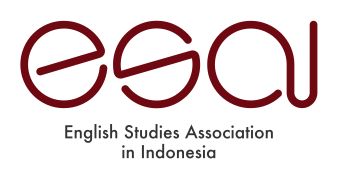Maxims of Politeness in Students-Lecturers Whatsapp Conversation
Abstract
This present study aims at analyzing the application and the violation of maxims of politeness in students’ language in communicating with lecturers via WhatsApp and at identifying which utterances are considered polite and which ones are not based on the five pragmatic scales. In the descriptive-qualitative research, the writer applies Leech’s theory of politeness principle in finding the answers to those questions. The results show that the language used by students in communicating with the lecturer through WhatsApp is considered polite where the amount of politeness maxims application is much higher when compared to the violation of those maxims. Violations are only found at tac and approbation maxim. The absence of violations of generosity, modesty, agreement, and sympathy maxim is due to the authority of the hearer and the social distance between speakers and hearers. The context of speech is also very helpful for students to speak politely, i.e. most of the contexts indicate that the students contact the lecturers because there is a need or interest they should discuss with the lecturer related to their academic maters. The politeness of students’ utterance in the data can be measured with the five pragmatics scales.
Keywords: politeness, maxim of politeness, self and other, pragmatic scales
Full Text:
PDFReferences
Brown, P., & Levinson, S. (1987). Politeness: some universals in language usage. Cambridge: Cambridge University Press.
Leech, G. (1983). Principle of pragmatics. London: Longman.
Gunarwan, A. (2007). Pragmatik: teori dan kajian nusantara. Jakarta: Penerbit Universitas Atma Jaya.
Nadar, FX. (2013). Pragmatik dan penelitian pragmatik. Yogyakarta: Graha Ilmu.
Wijana, I. D. P. (1996). Dasar-dasar pragmatik. Yogyakarta: Penerbit Abadi.
DOI: http://dx.doi.org/10.30813/jelc.v8i1.1034
Refbacks
- There are currently no refbacks.



2.jpg)



